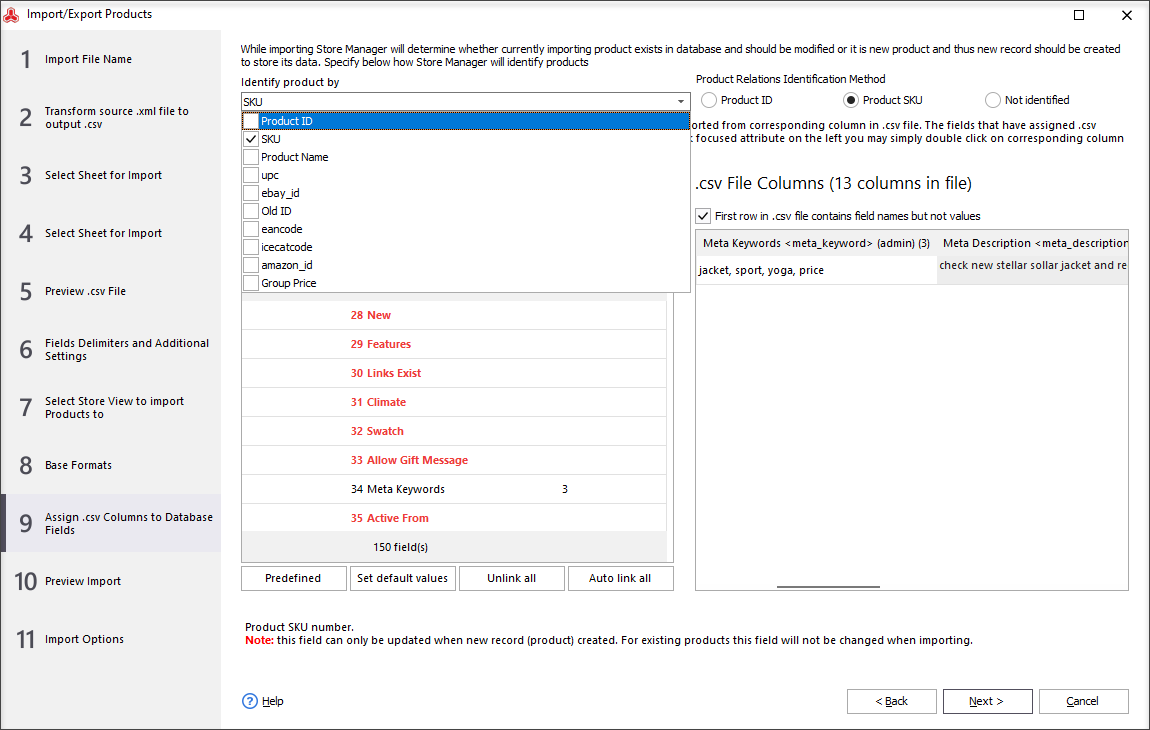How to optimize your Magento 2 SEO? Add/update meta details massively using import
When we are talking about Magento 2 SEO, every site owner knows, that meta details are an important part of the optimization for higher ranking in the search engines. Thus, you should pay attention to such entities, as Magento meta title, meta keywords and meta description.
Import Meta Tags for Magento 2 Products
In order to run import of meta information from the Magento 2 backend side, proceed to System -> Import -> Entity type (products) -> Add/Update products.
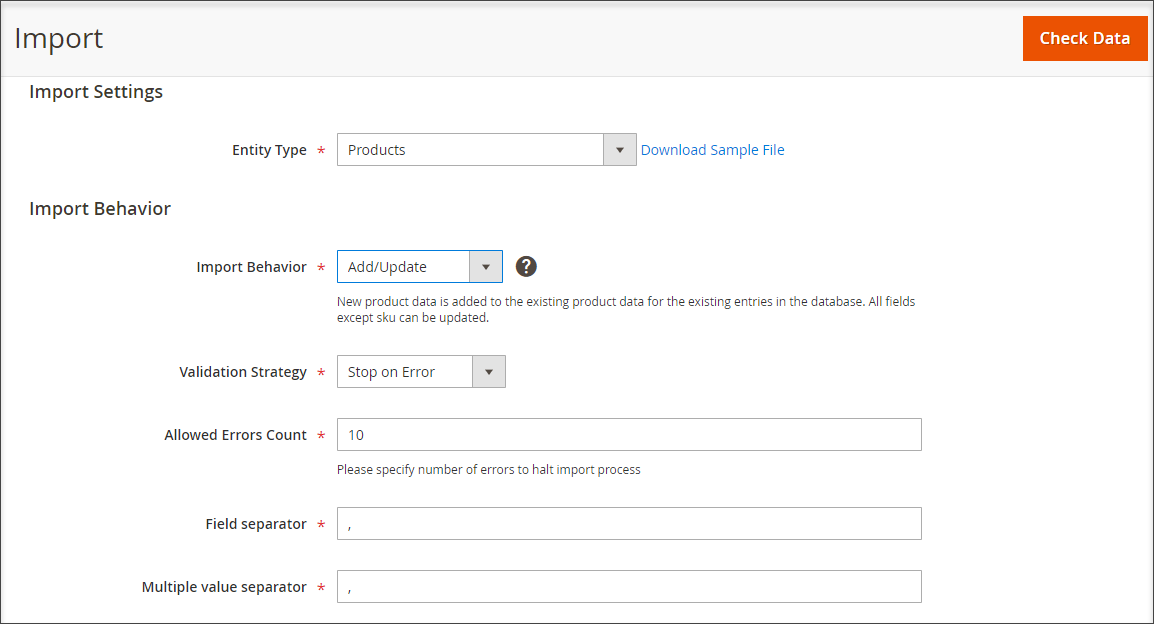
Many of users frequently face difficulties while performing import via Magento 2 admin panel, as it has strict requirements to the file you are making upload from. In such case, the Store Manager for Magento application will help you out. To replace manual work, this easy-to-use tool will allow you to make changes flexibly in a few clicks, instead of doing them one by one spending a big amount of time.
Using Import option in Store Manager for Magento, you have a great opportunity to add or modify meta details from the different file formats, as the software does not impose restrictions on the file.
If you already have the products created in your store and just need to update them, you may use only the SEO details you want to change and the product identifier (be it product ID, product name, SKU or else).
Make your meta details unique in a few clicks with Store Manager for Magento TRY FREE
Import Meta Title, Meta Keywords and Meta Description Using Store Manager for Magento
With the file example provided below you may check what necessary fields should be included in the file to proceed with import of meta information smoothly and successfully:

As an alternative, you may export products directly from Store Manager to have the sample of file to restructure it with the details for further import.
After you are done with file organization, you may carry on to Import/Export Wizard in Store Manager:
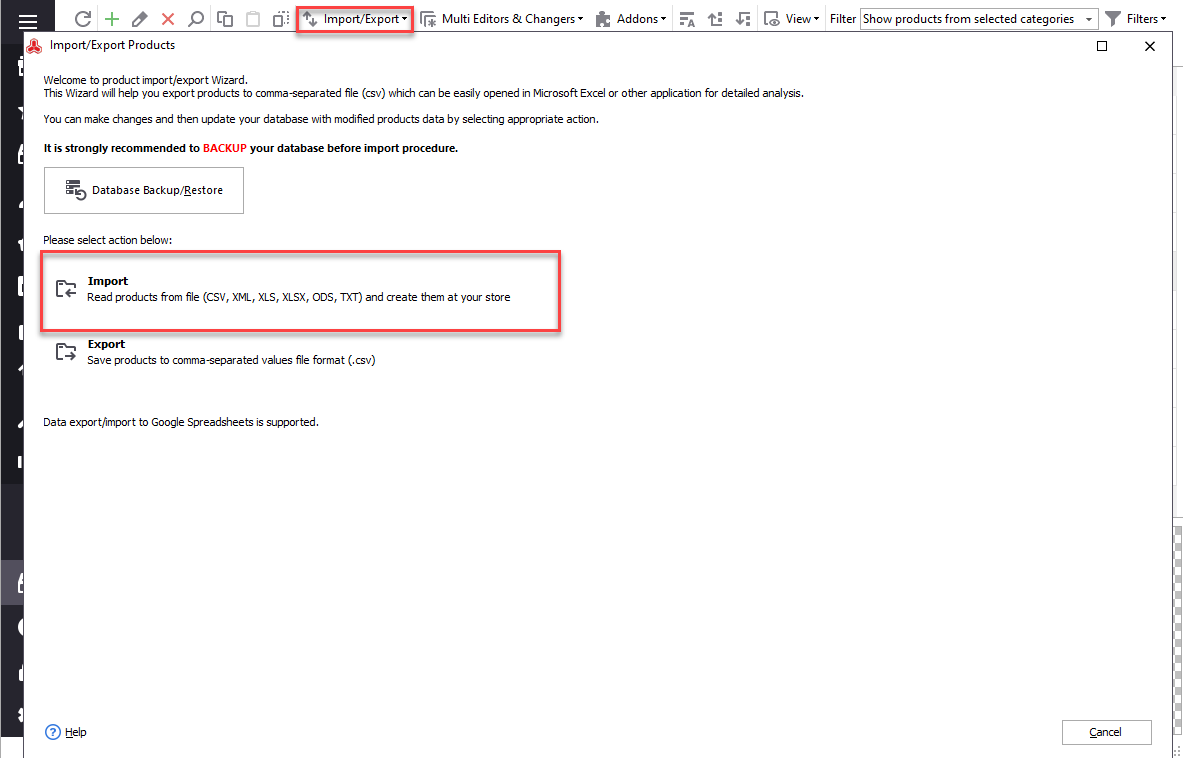
At the third step of the import, pay attention to the delimiter characters to see if the file has a correct structure. You can check it right in the CSV file preview:
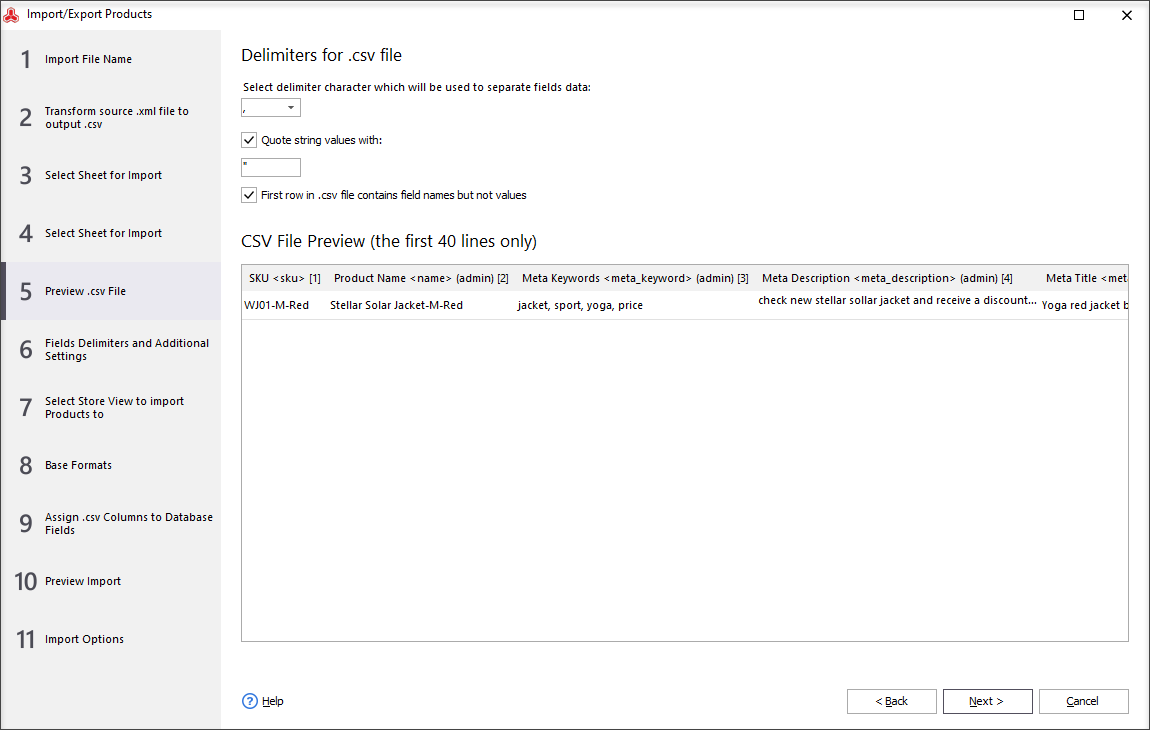
The next step you need to attach particular importance to is assigning file columns to the database fields.
It is especially important if your header names in the import file differ from the existing in the database, so the SEO information could be correctly uploaded to the corresponding fields.
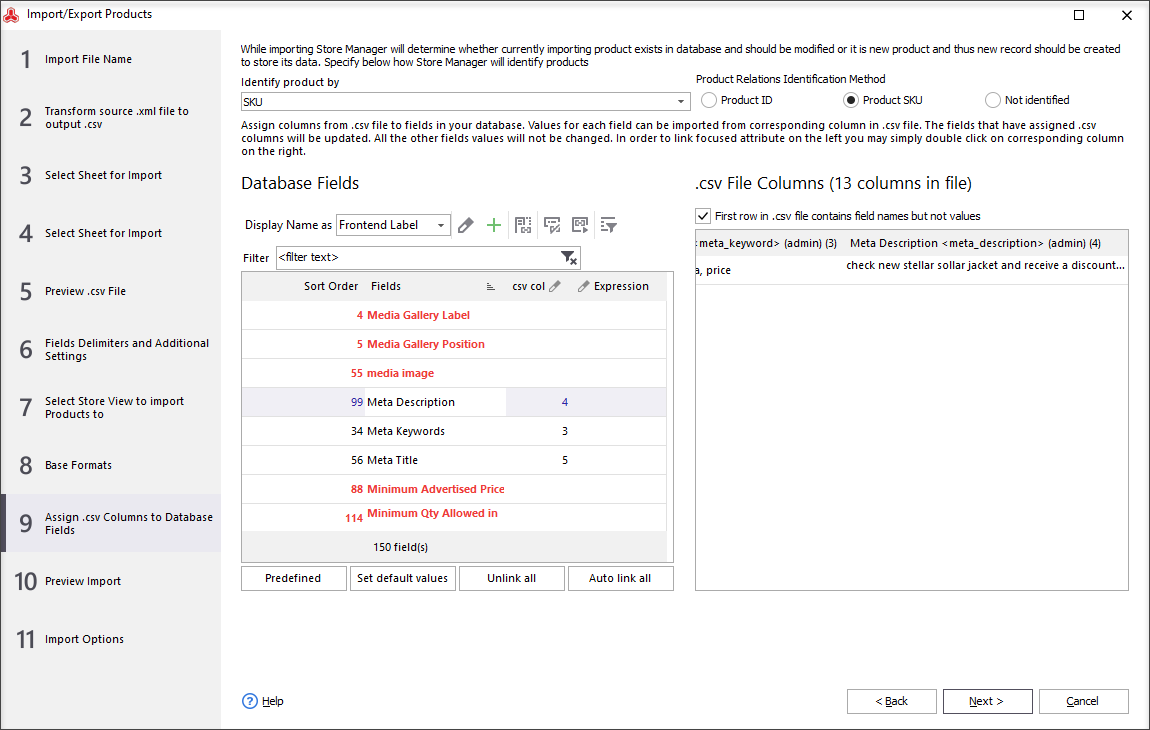
Also, note, that at the same step, you need to select the entity the products will be identified by.
At the final stage of the import process, choose the needed import options depending on the fact, whether you add new data and modify the existing ones.
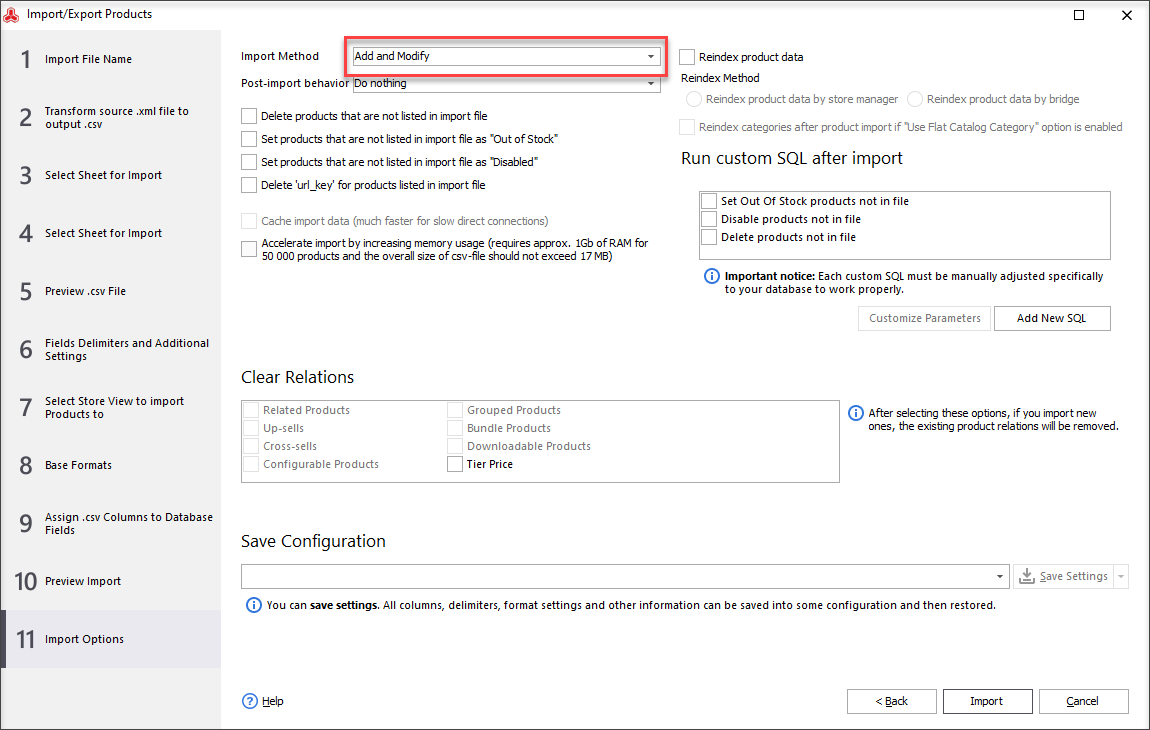
After all import settings are done and upload is finished, you can check the outcome.
Take Advantage of Import Option to Create Unique Meta Details with Store Manager for Magento
Making your meta information unrepeatable in bulk is a simple process by means of Store Manager software.
To do so with import tool, it is not required to perform some changes to the csv import file in advance.
To create your unique meta data and make adjustments with minimum efforts, the special Expression formula can be used to help you with the process.
Let us take a closer look at the options to make your own specific meta information through import option on-the-fly.
For a Meta Title
- product name + attribute (one or two)
- connect product name with special price
Let us dive more deeply into the expressions example to see how they should be used properly.
The first one, name, divided by the colon, combining with the attributes, separated by pipe, should be applied the following way:
CONCAT( [[CSV_COL(Index1)], ' : ', [CSV_COL(Index2)], '|', [CSV_COL(Index3)])
* there should be a column with product name instead of Index1 specified and correspondingly, Index2,Index3 - numbers of columns containing attributes you used for the product
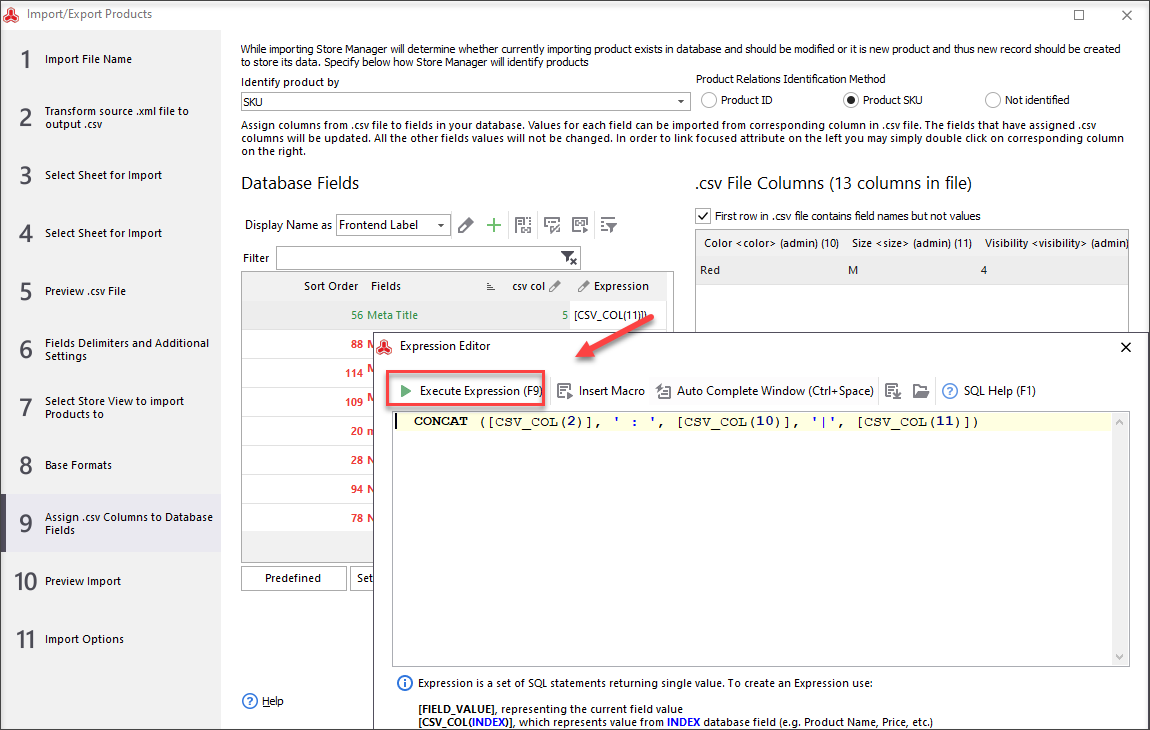
After that, press “Execute expression”, then “Next” to see the result.
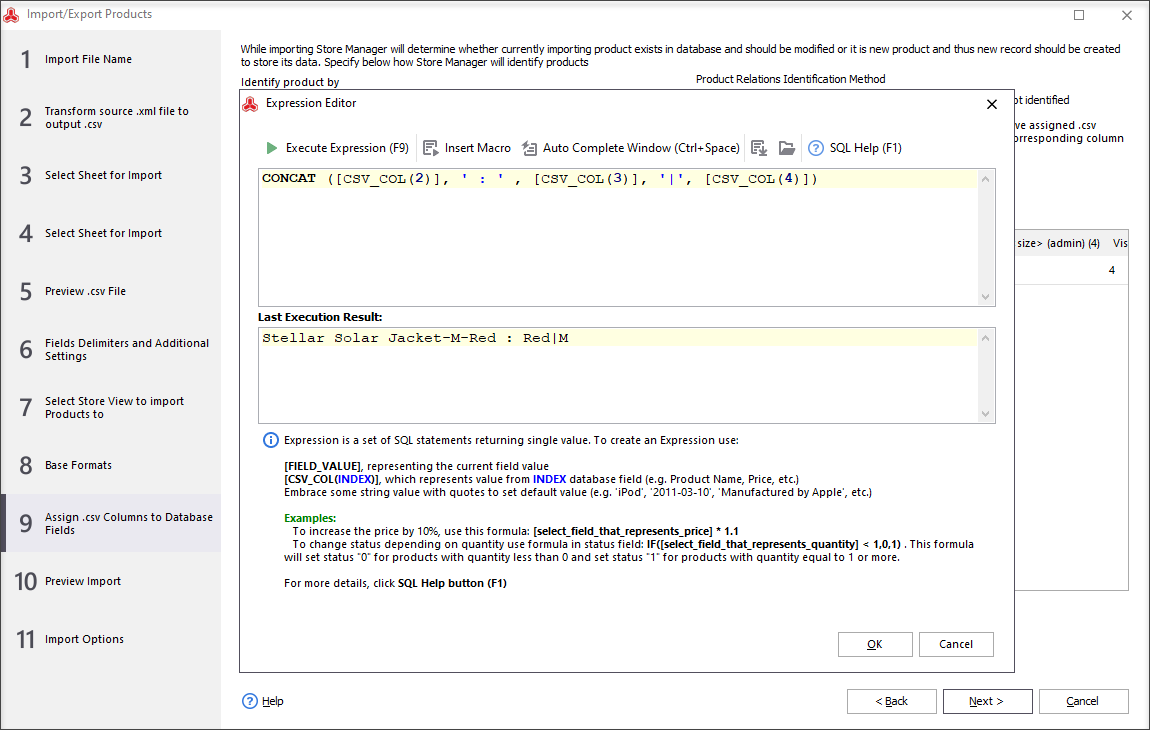
In the second example of expression formula, combining name and special price, we used “for only $” to separate the fields. The formula should be performed as follows:
CONCAT ([CSV_COL(Index1)], 'for only $' , [CSV_COL(Index2)]) * where Index1 has to be replaced with the number of column with product name, and Index2 - number of the special price field
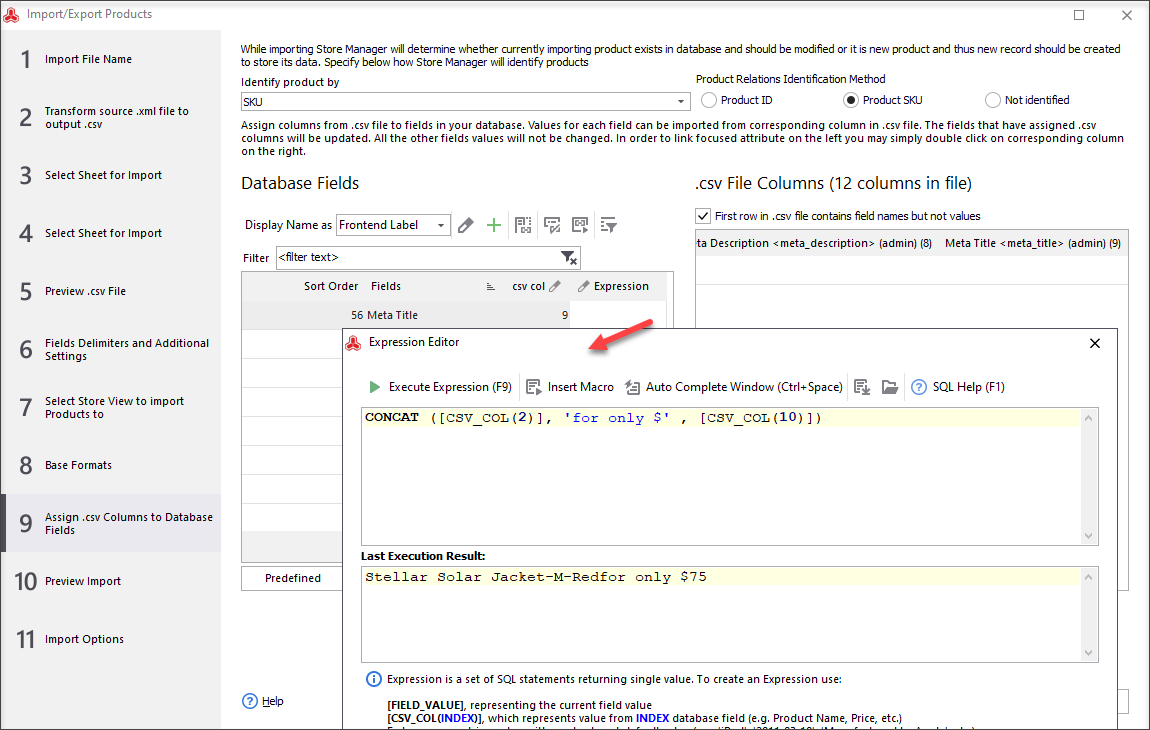
For Meta Keywords
As an alternative, for Magento meta keywords , you can use the expression rule with product name, add a specific attribute to it and separate the words with comma symbol.
The following expression will help you do so:
CONCAT(LOWER(REPLACE([CSV_COL(Index1)], ' ', ', ')), ', ', LOWER([CSV_COL(Index2)]))
* where Index1 is the column with the product name and Index2 - number of the column with the attribute
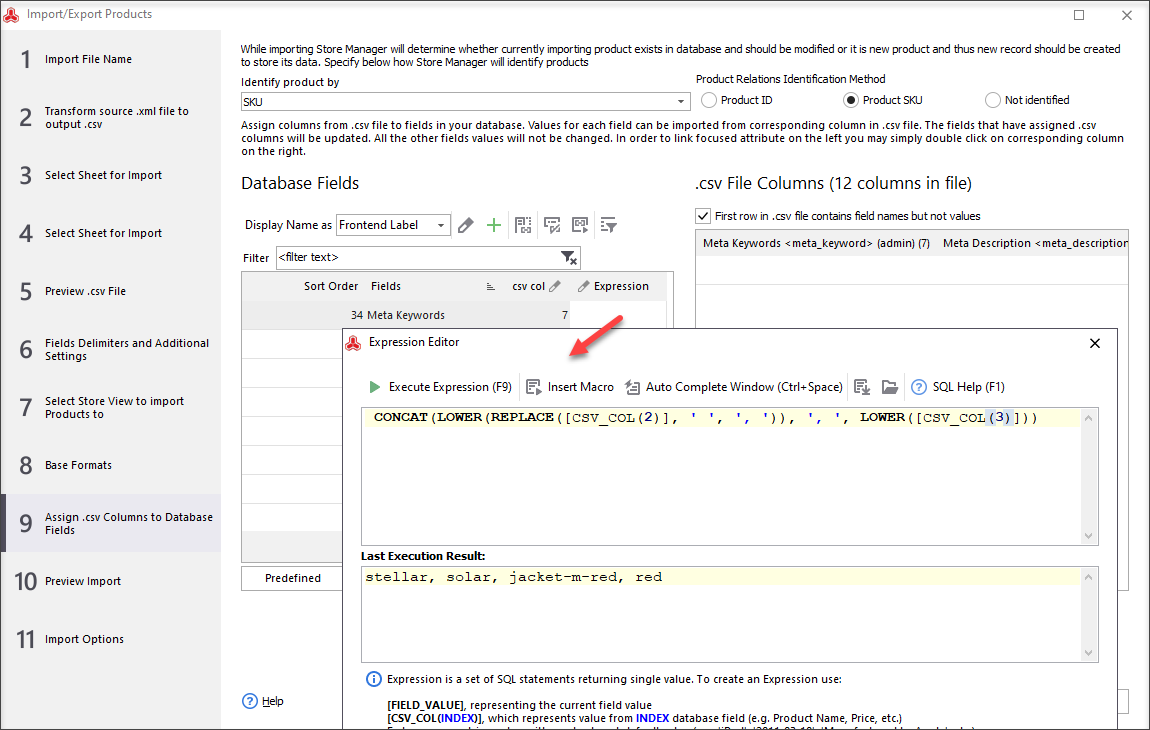
Meta Description
As an example, for Magento meta description you can associate the sentence “Order now and receive free shipping!” with the description of the product you already have.
Also, note, that meta description has limitation - the snippet of the content should be not longer than 160 characters.
Check the expression sample of the condition mentioned above, that has to be placed in the meta description database field:
CONCAT ('Order now and receive free shipping!', ' ',[CSV_COL(index1)])
*where index1 is the number of the description column
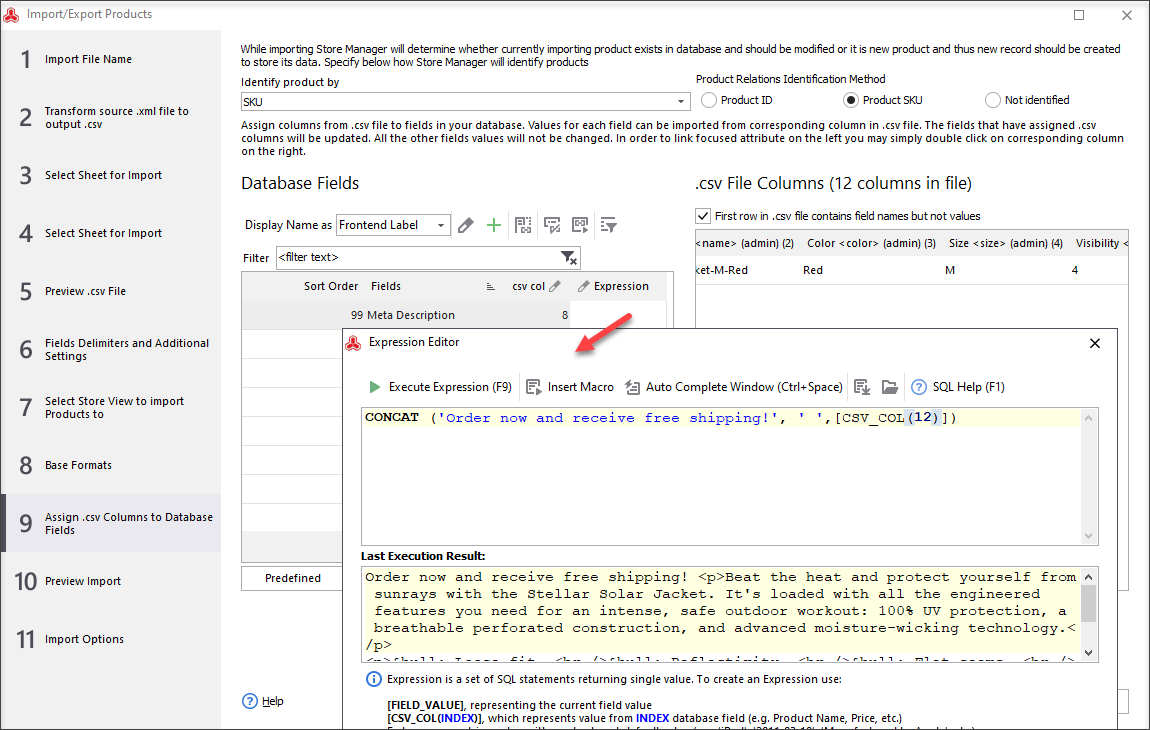
Edit Meta Details of Your Magento Categories
There is also a great opportunity to manage your Magento meta title, meta description and meta keywords in the particular categories and its subcategories using import.
For this, Store Manager has a separate Import/Export wizard:
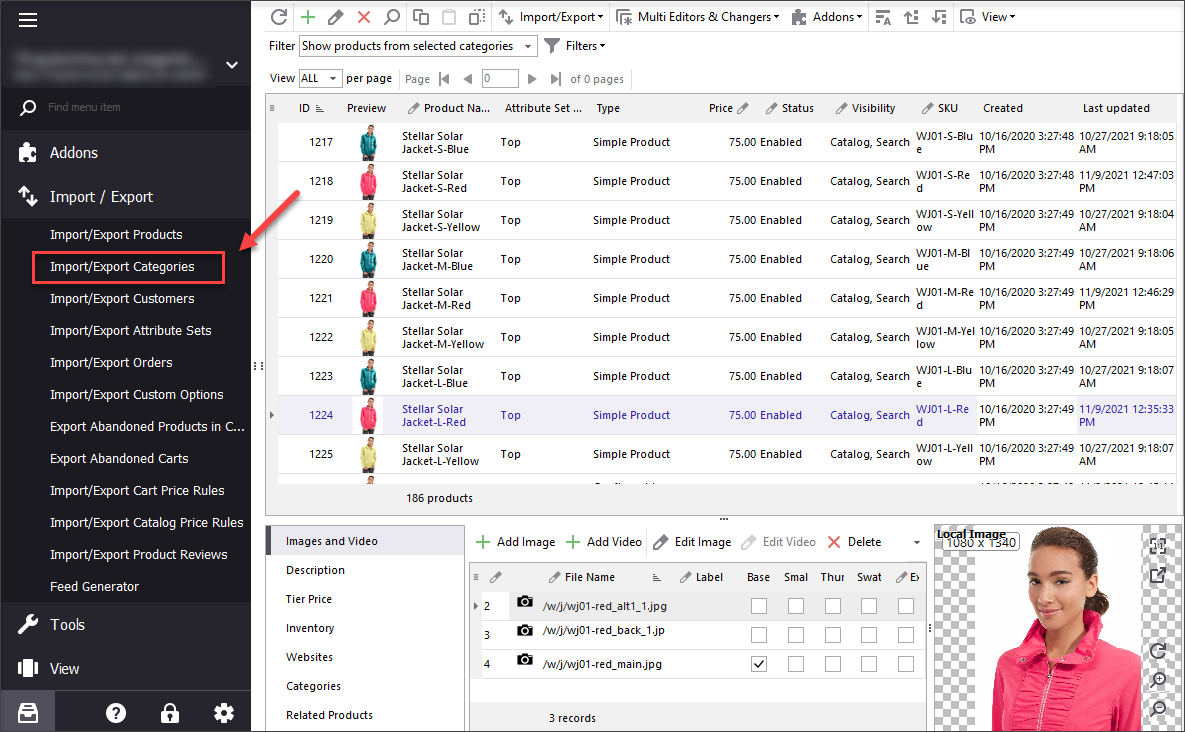
You can specify the SEO data in the corresponding fields of your import file. For update, you may use both identifiers (category ID or name + category path):

At the step of import you may use the specific expression formula to make your category meta information exceptional as well.















